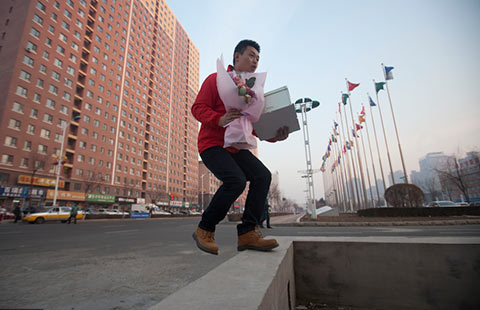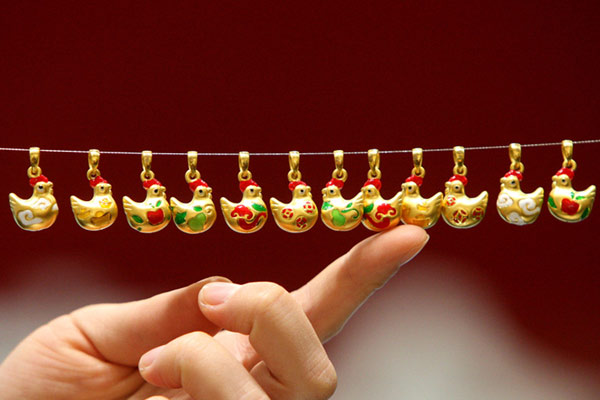New tightening polices spur transactions
Agencies report rapid sales in used property market, as buyers rush to avoid new 20 percent income tax
The latest tightening policies issued by the State Council on Friday, which include levying a 20 percent income tax on pre-owned home sales, are spurring property transactions on the secondary market in some first-tier cities.
In a property exchange center in Shanghai's Pudong New Area, both the first and second floors were packed with homebuyers and property agents on Monday. People waited in long lines to complete their transactions as soon as possible to avoid the heavy tax.
On Saturday, 1,059 apartments were traded in Beijing, surging from 746 on Friday, according to Centaline China Property Research Center.
Zhang Dawei, head of Centaline's research department, said last Saturday was the only time when more than 1,000 units have been traded on a non-working day on the secondary property market in Beijing.
Huang Zhijian, executive director of Uwin Real Estate Research Center in Shanghai, said the new policies will fuel home transactions on the secondary market in the short term.
However, when the detailed regulations, which are worked out by local governments in line with the State Council's guidelines, become effective, the secondary market will decline sharply and many agencies will close.
The new policy of levying 20 percent income tax on home sales is not new in China.
It was introduced as early as 2010, but home traders had the options of paying 20 percent in capital gains tax from the transaction or paying a 1-2 percent tax of the property's total value, according to Chen Shin-ling, general manager of Taiwan-based Yungching Real Estate Agency in Shanghai.
"When housing prices keep rising, most people, especially in major cities, usually choose the much lower tax of 1-2 percent of the house's total value," said Chen.
According to Huang, some homebuyers may turn to new properties to avoid the heavy tax, but the low supply of them will only send property prices even higher, and there is the likelihood that sellers will transfer the 20 percent income tax to homebuyers if the price rises too much.
"If there is a sufficient supply on the market for self-use homebuyers, the new tax policy will be able to effectively cool down the secondary market," added Huang.
Chen suggested that collecting property tax on all existing houses may be a better option to regulate the housing market.
"It is time for the government to seriously think about setting an overall property tax across the nation. Taking the United States as an example, the government can collect much more tax from owners with more properties, and being taxed for owning a house will persuade home owners to sell their properties. Therefore, there will be more supply in the market in order to ensure that property prices are stable," said Chen.
Hui said the tax will not become a long-term policy if it cannot effectively curb property prices and balance supply and demand.
wang_ying@chinadaily.com.cn

















